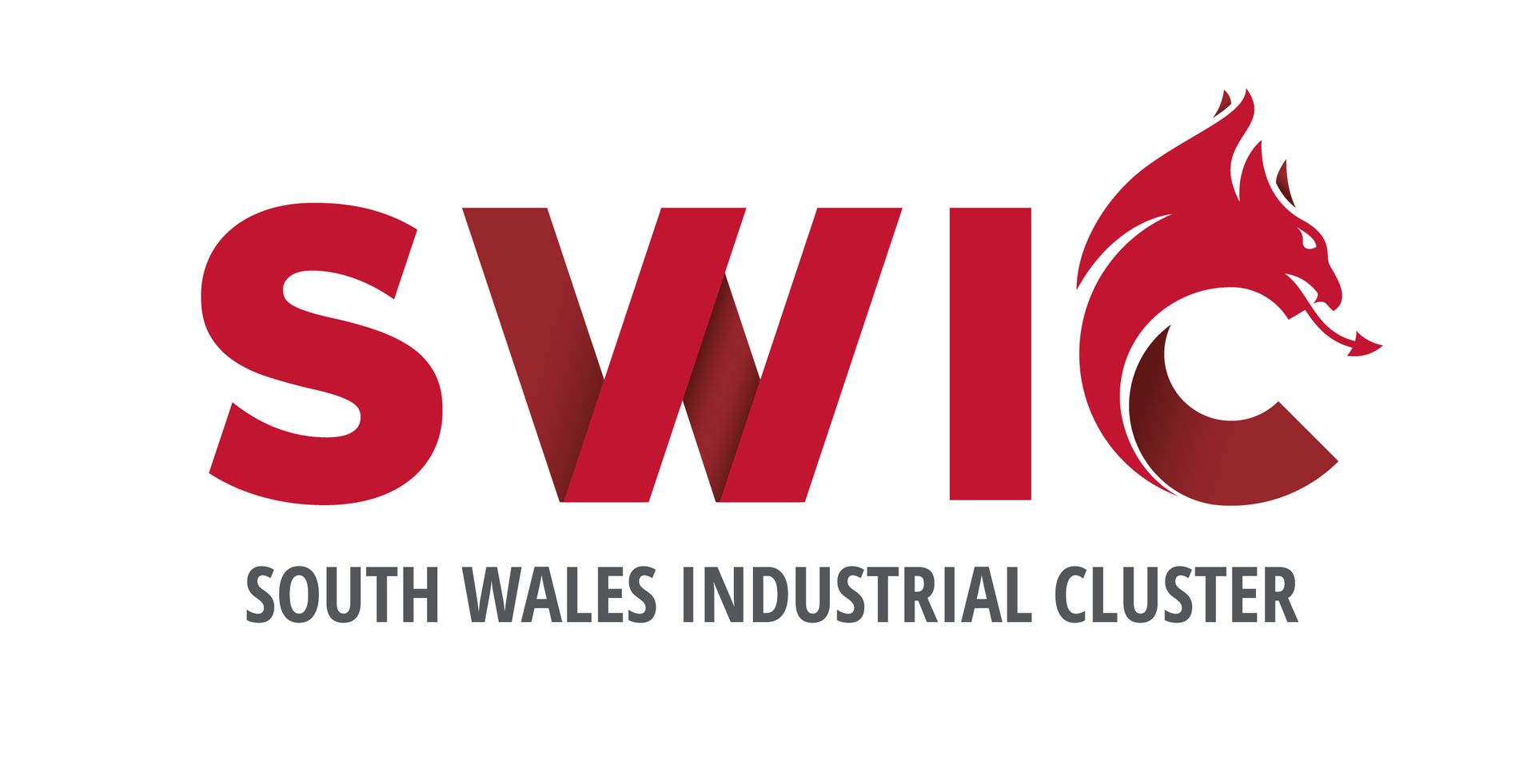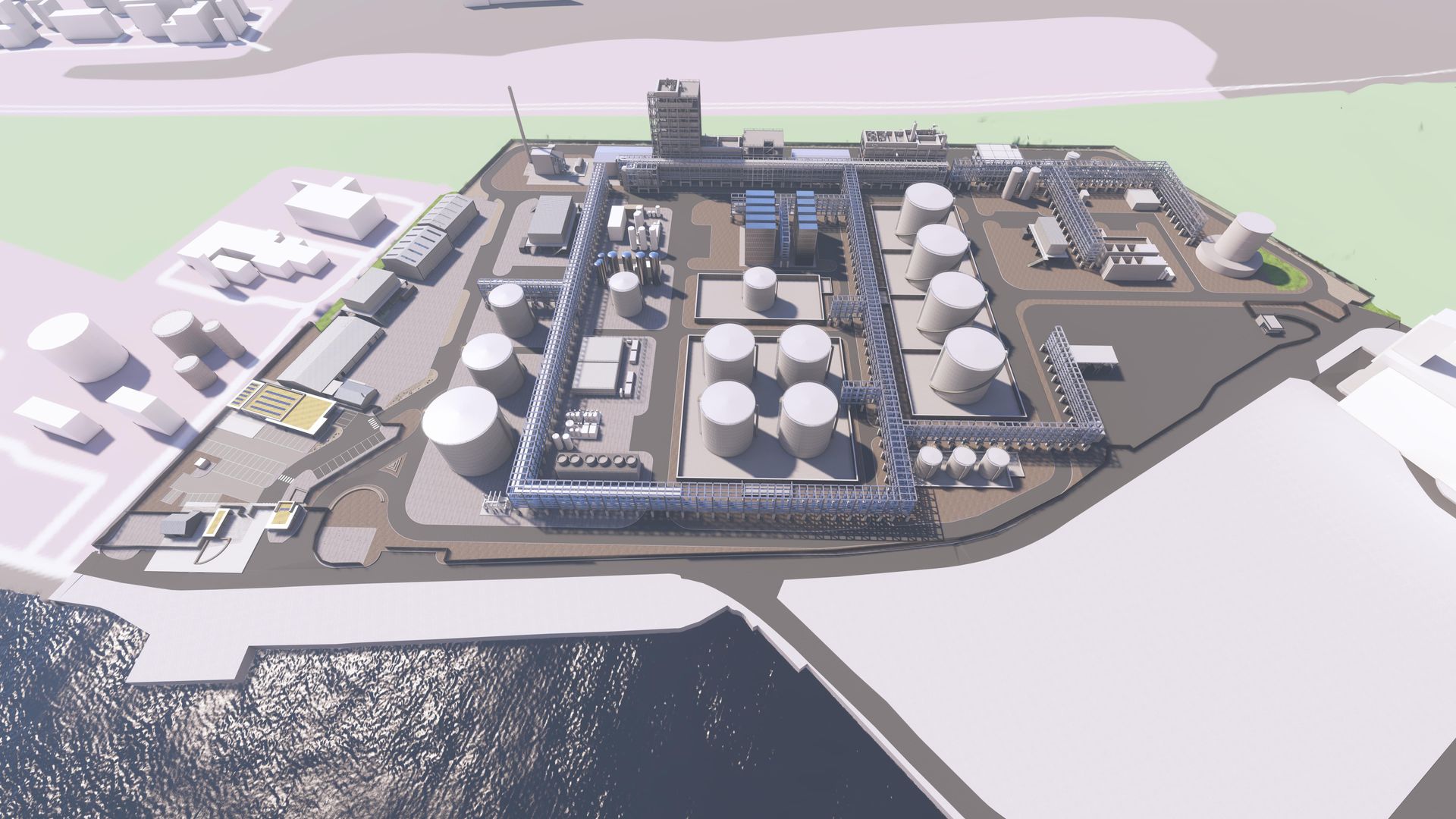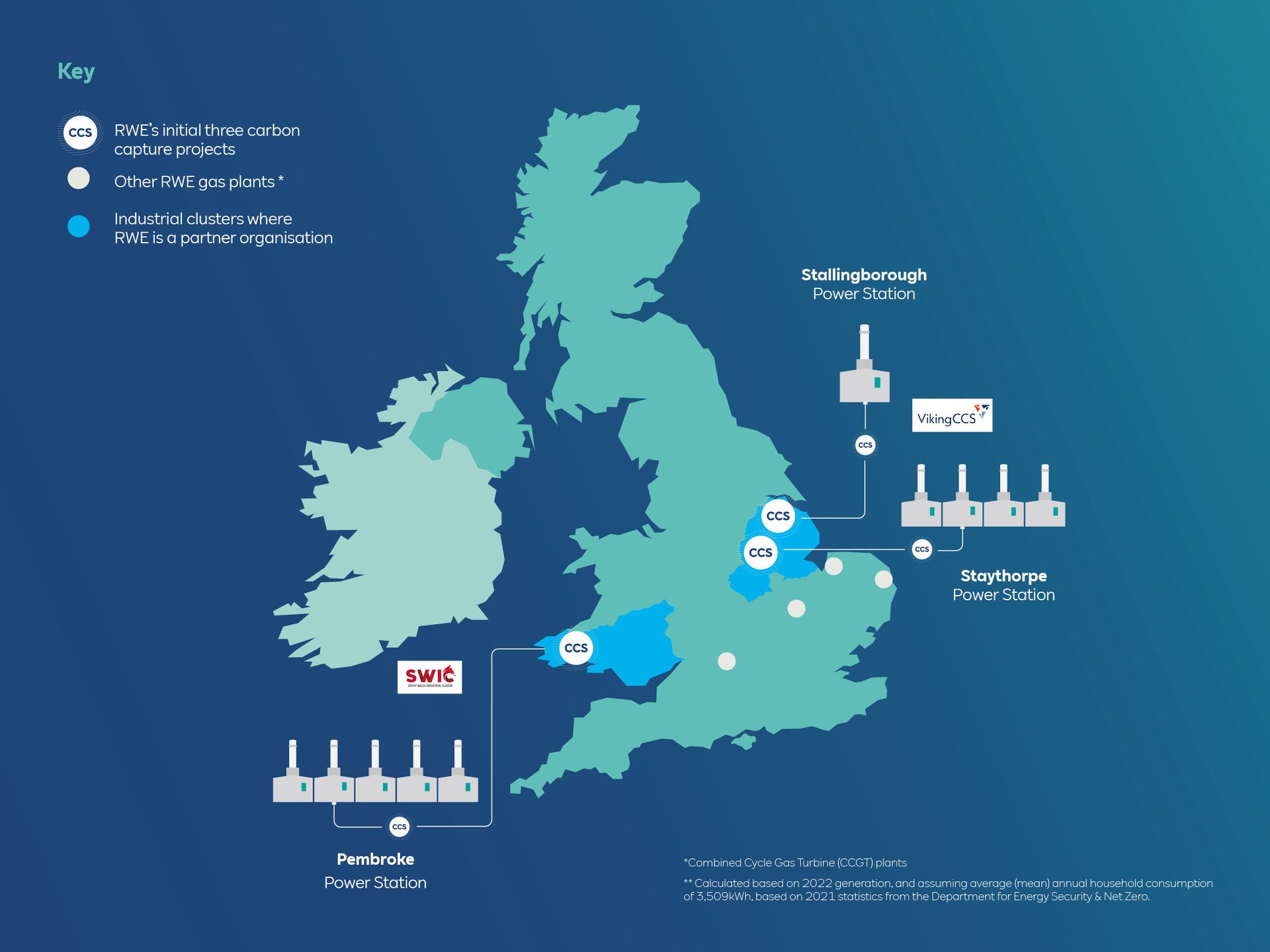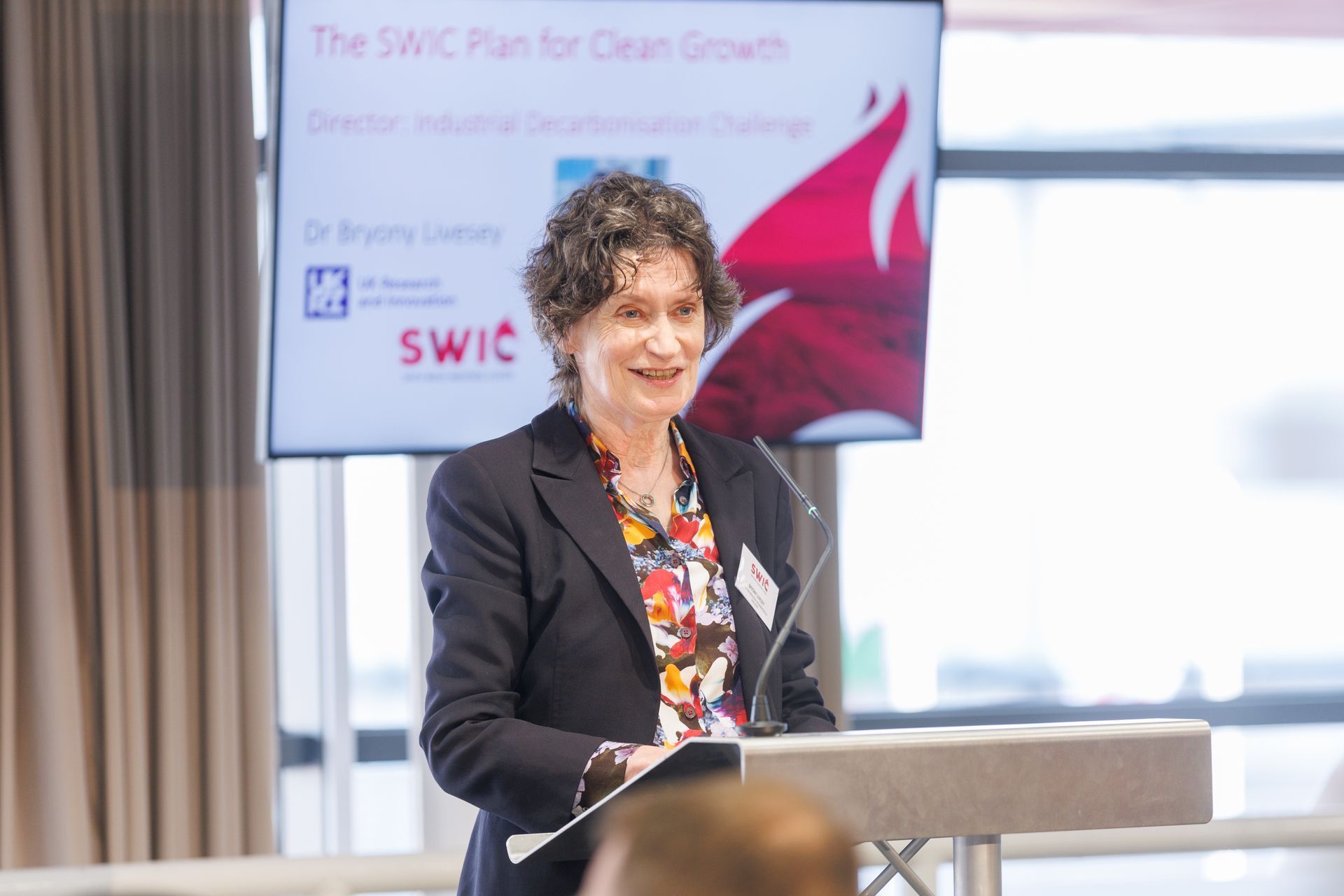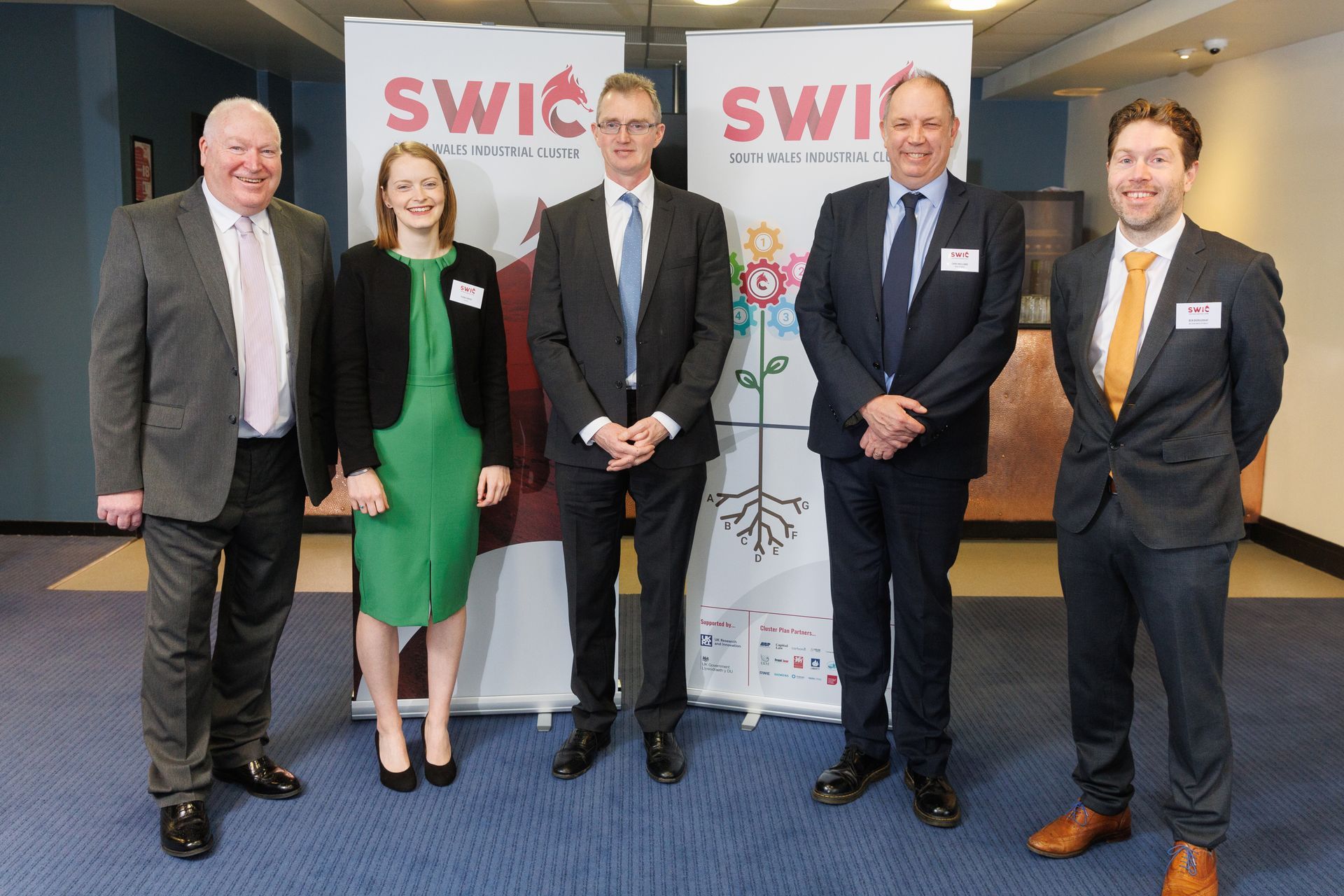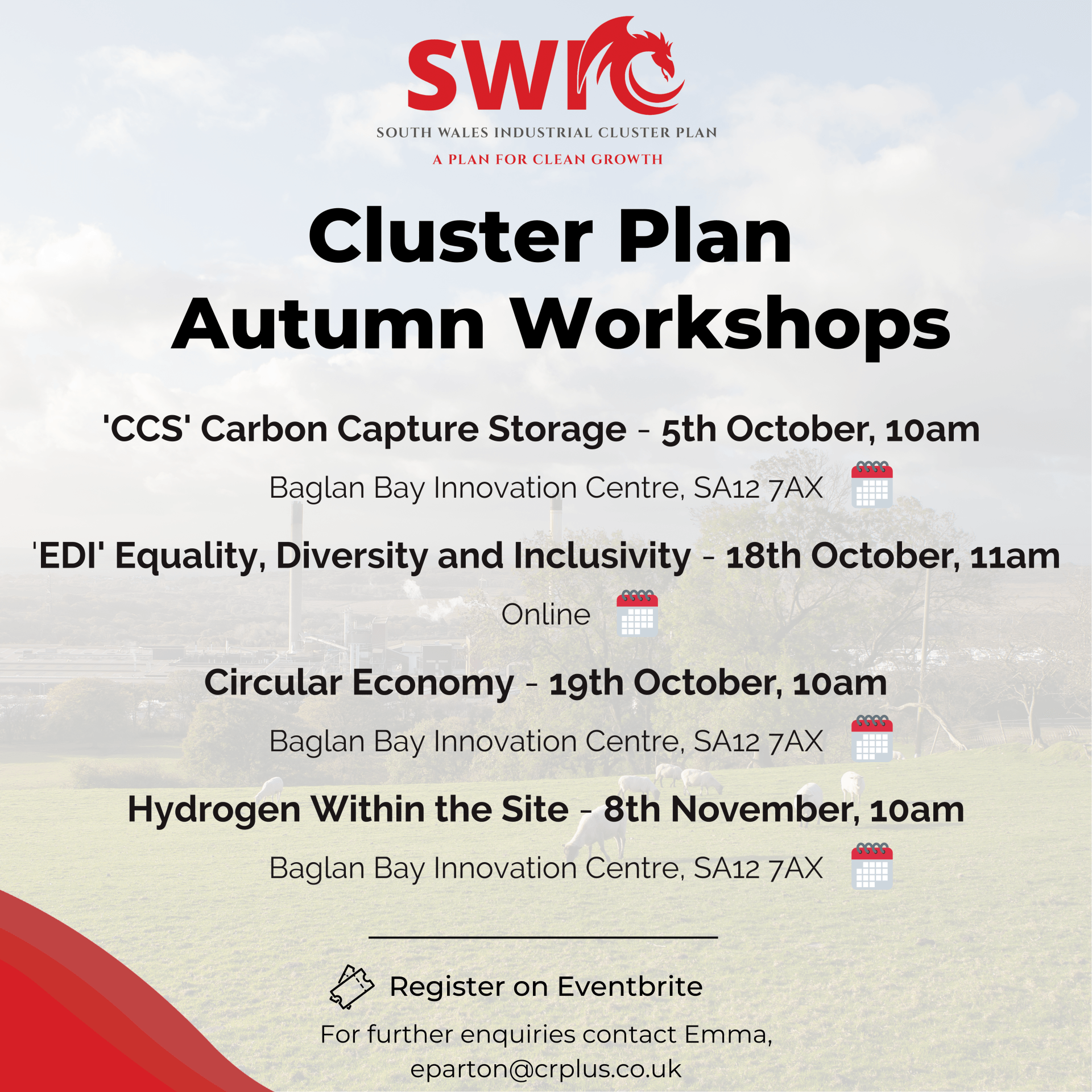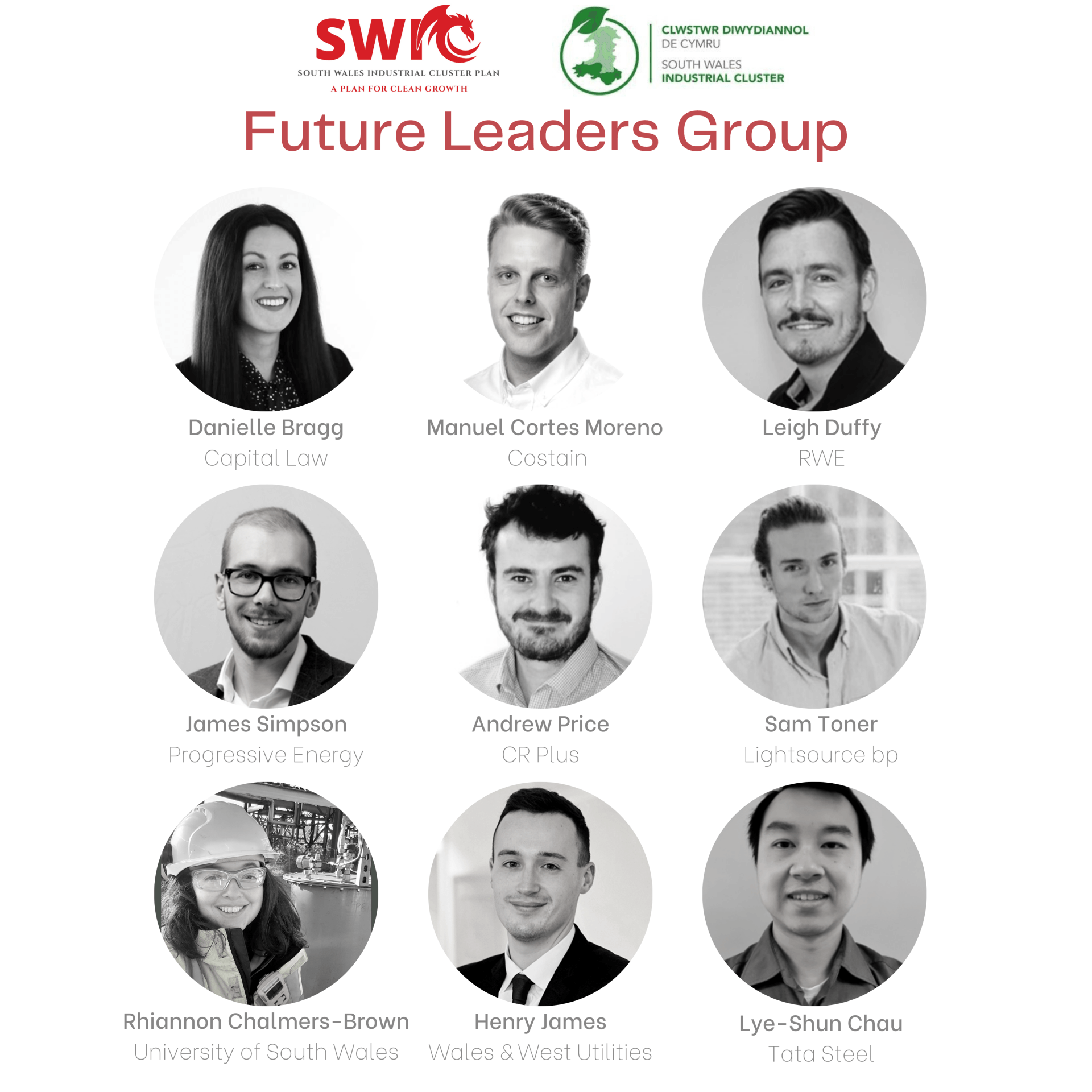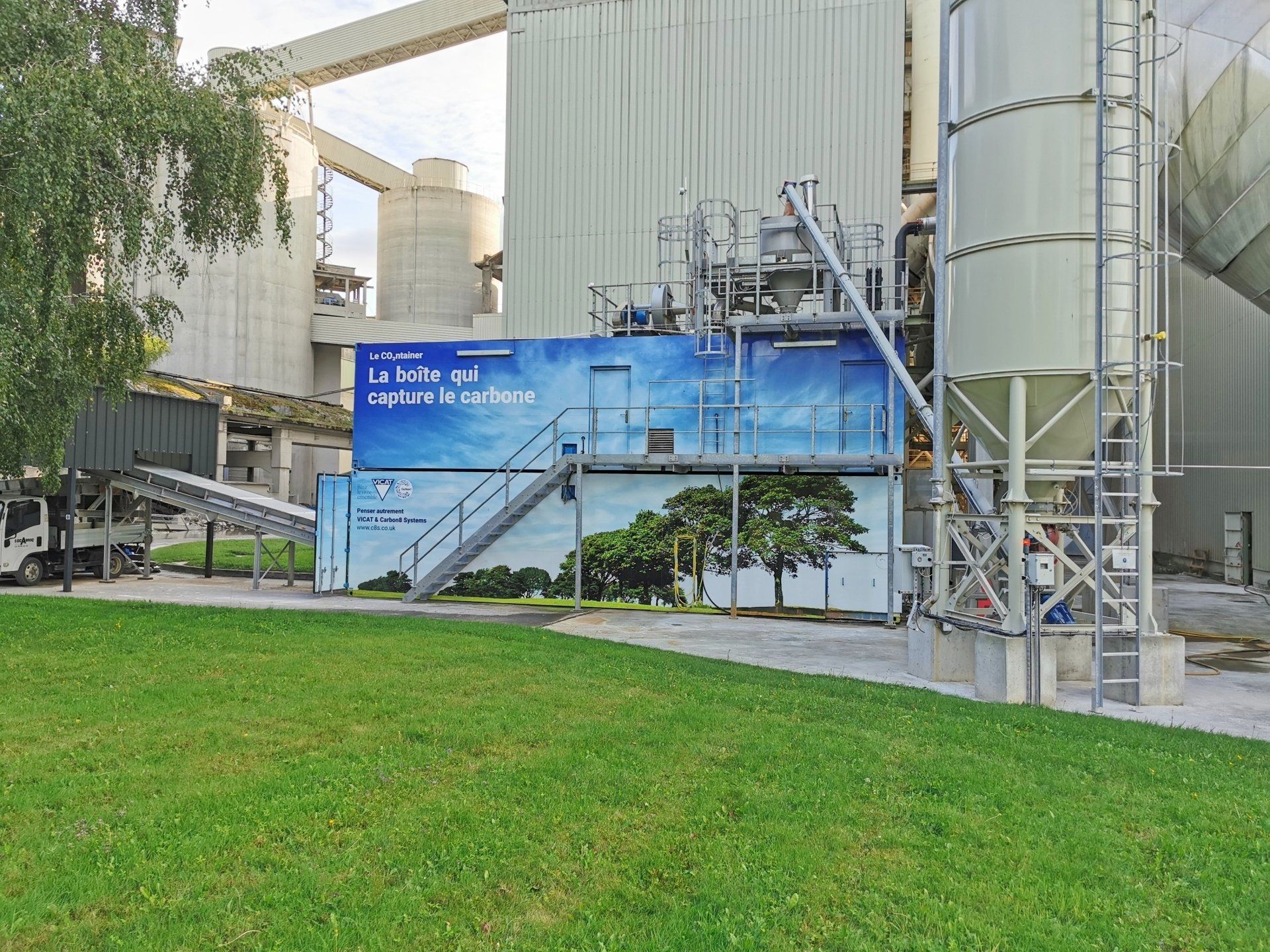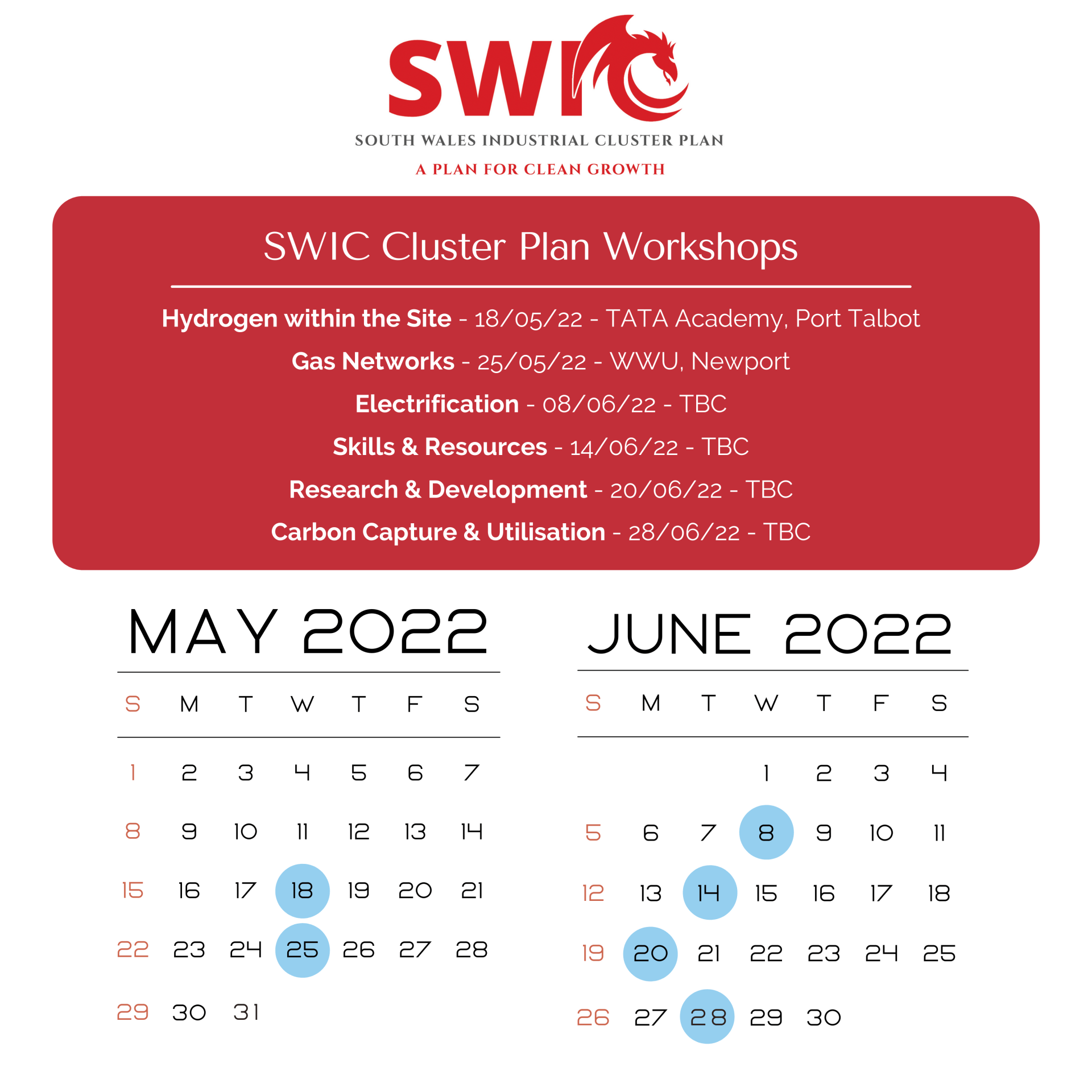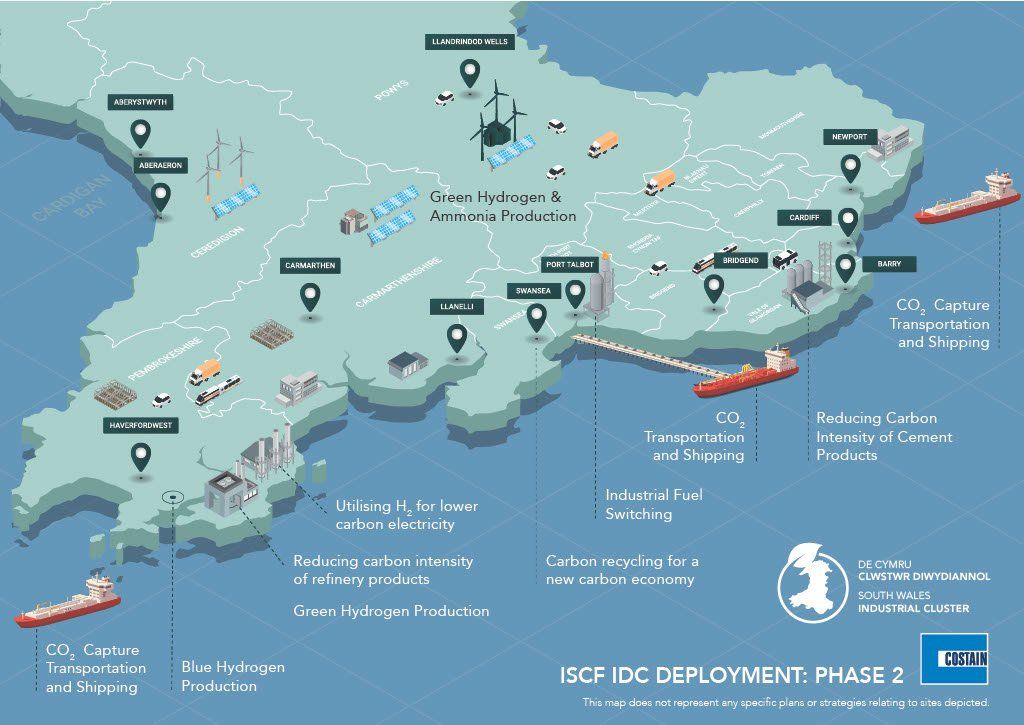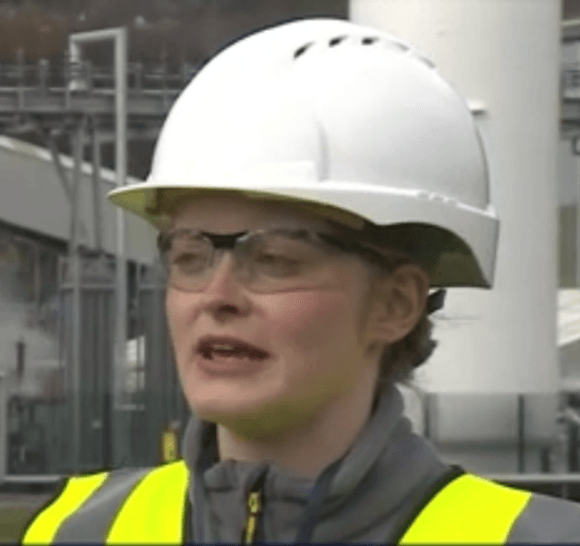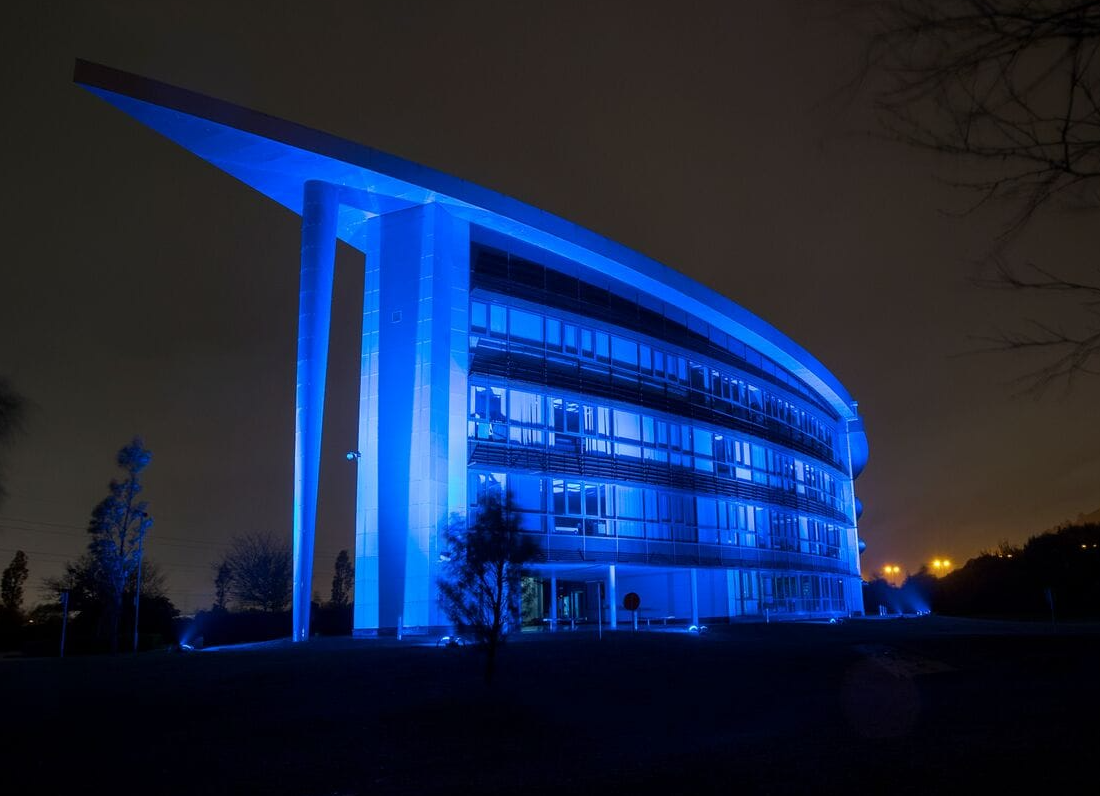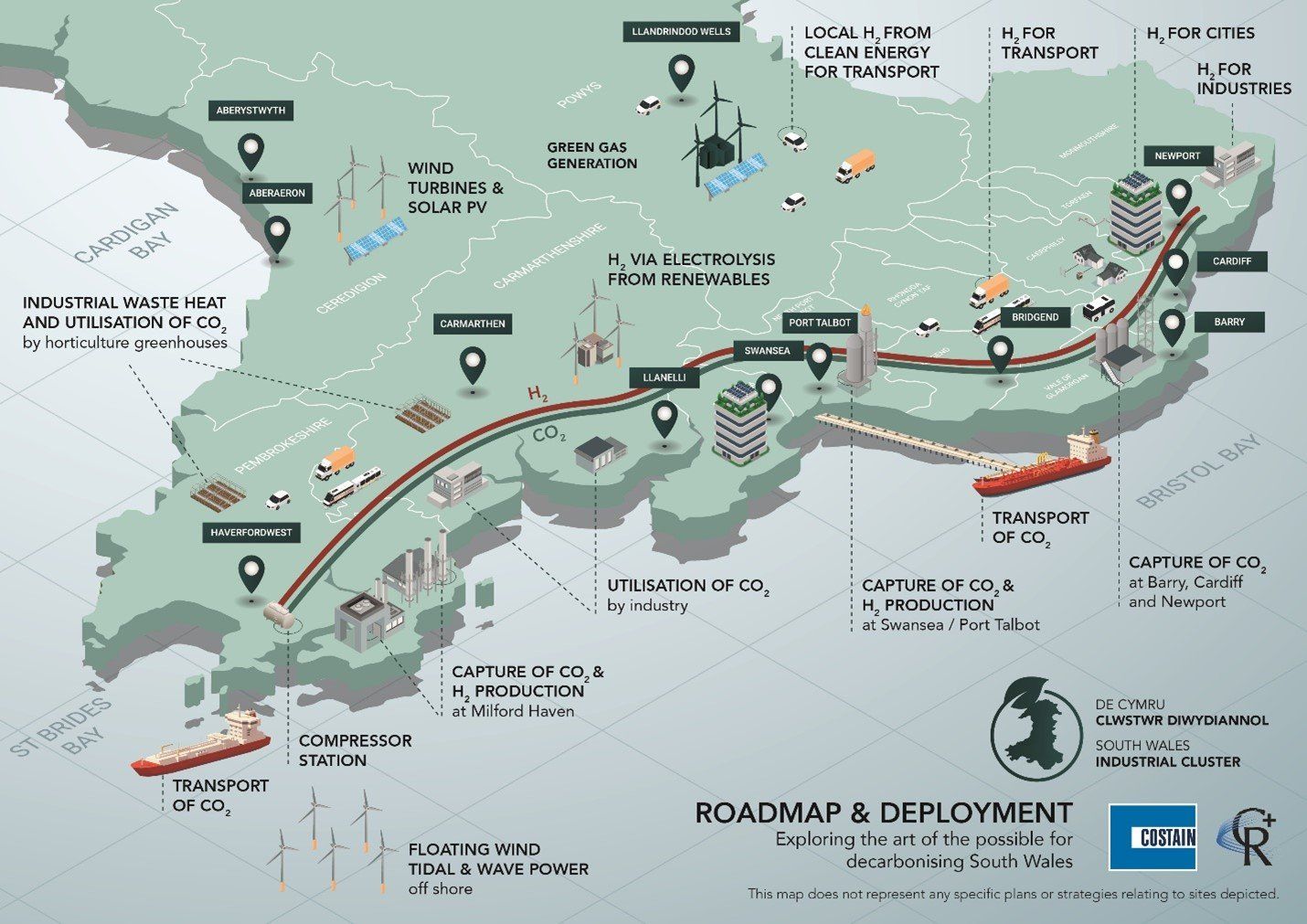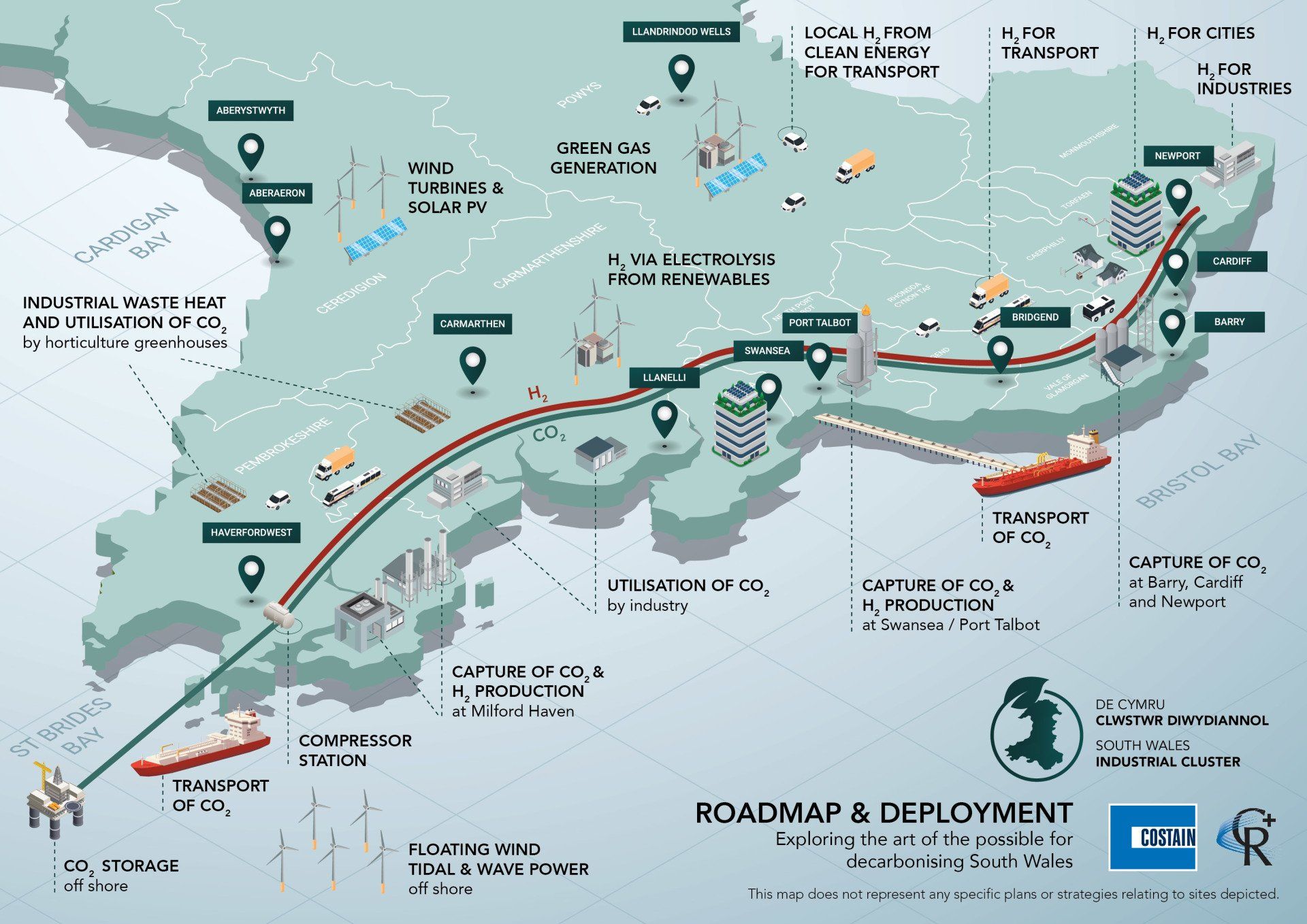Shell announces investment in Energy Transition Skills Hub at Pembrokeshire College
New Energy Transition Skills Hub | Pembrokeshire
Shell: "Leveraging on our existing relationship through Dragon LNG with Pembrokeshire College, Shell UK is about to launch an Energy Transition Skills Hub at the Haverfordwest campus. The new
Virtual Control Room Training Centre will provide over 550 people with the opportunity to gain new skills to accelerate their careers or take up jobs in energy transition. Learners will have access to a new industry recognised, City and Guilds assured course in control room training which will have applicability across energy sub sectors. This new teaching facility, which will repurpose existing space on the campus will be fully functional by September 2024.
In addition to the new investment we are supporting Pembrokeshire college with their application to the
Swansea City Deal Skills and Talent Fund. This strengthened partnership demonstrates our commitment to Pembrokeshire and shows we are actively supporting skills for people to be ready for the energy transition as part of our commitment to support 15,000 people into jobs with a focus on the energy transition by 2035".
Association to Horizon Europe Information Webinar - Innovate UK KTN
📅 14th Sep 2023
🕒 14:00 BST / 15:00 CET
The webinar will offer information on the UK Horizon Association deal and details on the support available to UK organisations to take advantage of the funding and collaboration opportunities under Horizon Europe.
🎟️ For more information & to register visit >
https://info.ktn-uk.org/2VFU-1EXOZ-5Q3O2K-Y8SBS-1/c.aspx
📣 Innovation Programme for business, supporting clean growth (CEIC Wales)
Develop new opportunities by developing a clean growth plan.
Looking to develop your innovation knowledge & skills and develop clean growth plans? Interested in enhancing tender capabilities for public service contracts in Wales?
The CE Innovation Network programme will support businesses and third sector organisations to develop innovation plans, within a network of like-minded people from across the region. Participating organisations will develop clean growth plans that could be eligible for Welsh Government innovation funding.
📅 To express interest in this fully funded 6 month programme starting October 23 visit
https://lnkd.in/dM2gPz5i
SWIC Partner: LanzaTech announces the launch of Pre-Application Consultation on plans to produce Sustainable Aviation Fuel in Port Talbot
LanzaTech UK Ltd, a subsidiary of LanzaTech Global, Inc. (Nasdaq: LNZA) (“LanzaTech” or the “Company”) has announced the next stage of consultation on its proposed industrial facility to turn ethanol into sustainable aviation fuel. The Pre-Application Consultation (PAC) follows a period of early consultation on the plans which was held in May and June of this year.
The consultation, which launched on
Monday 14th August
and will run until
Wednesday 13th September, provides the opportunity to comment directly to LanzaTech on the proposals prior to the submission of a planning application to Neath Port Talbot Council. Draft copies of the proposed application, plans, and other supporting documents can be viewed online at
www.lanzadragon.wales.
If approved the facility, which would be located at Crown Wharf in Port Talbot, would produce about 100 million litres of sustainable aviation fuel per year, around 10% of the sustainable aviation fuel that the UK plans to use by 2030. When compared with conventional jet fuel, sustainable aviation fuel reduces the production of greenhouse gases by more than 70%. This is expected to create over 150 full-time jobs, including 85 jobs on-site alongside further employment in the supply chain.
Jim Woodger, Managing Director of LanzaTech UK said, “The production of sustainable aviation fuel in Port Talbot moves a step closer today with the launch of our Pre-Application Consultation. Our plans contribute to a green industrial renaissance in Port Talbot providing around 150 high quality jobs into the future. We have also taken care to ensure our proposal minimises impacts on the town such as by rejuvenating the wharf to ship SAF from the site to reduce traffic; installing a ground flare to minimise noise and the appearance of the site; and to minimising air pollution releases so these make a negligible contribution to local air pollution. LanzaTech will be a responsible neighbour and we are looking forward to sharing our updated proposals with the local community and hearing its views in coming weeks.”
Anyone who wishes to make representations regarding this proposed development is invited to contact:
c/o Turley
18 Windsor Place
Cardiff
CF10 3BY
RWE present their ambitious UK plans today
RWE announces development proposals for 3 new carbon capture projects in the UK.
With up to 4.7GW of decarbonised generation capacity - enough to power up to 8.1 million average UK homes, while capturing 11 million tonnes of CO2 per year.
Full story:
https://t.ly/tcYo
📺BBC Wales Today
Our Cluster Plan Project Manager, Flora Davies highlighted the good work the project has done, led by the CR Plus team.
Watch the clip below:
Cluster Plan REPORT launched - A plan for clean growth 🌱
The report showcases ambitious plans to achieve:
💰 Unlocking of £30bn investment
🏭 40% reduction of current Welsh CO2 emissions by 2040
👷 Retention of 113,000 jobs and a net positive increase in jobs overall
📢 Our report outlines 30 policy drivers that are vital to decarbonise industry
.
Visit our VIRTUAL ROOM 🚪🚶to view the report 🔗 >
https://content.zone-secure.net/swic_planforcleangrowth/
UKRI Support SWIC Cluster Plan Launch
SWIC would like to thank Bryony Livesey, IDC Director, UKRI - Industrial Decarbonisation Challenge (IDC), who has supported the development of SWIC through the successful Cluster programme from its inception to yesterdays SWIC Cluster Plan launch event.
Bryony Livesey commented:
"The development of SWIC's cluster plan is not the end of our efforts to decarbonise, it's the start of something very important for the future of South Wales".
Secretary of State for Wales, David TC Davies attends SWIC Launch Event
SWIC Cluster Plan Project Launch event at the Principality Stadium in Cardiff (left to right);
👤
Cluster Plan Director - Tony Parton, CR Plus
👤
Cluster Plan Project Manager - Flora Davies, CR Plus
👤
Secretary of State for Wales - David TC Davies, UK Government in Wales
👤
Nominated SWIC lead - Chris Williams, Industry Wales
👤
Industry Wales - Ben Burggraaf, CEO NZIW
The Well-being of Future Generations Act
"
Business in Wales want to invest in the well-being goals. The race is on to take control of decarbonisation and to potentially lead the world in industrial transformation."
- Sarah Bowles, South Wales Industrial Cluster
It is great to see SWIC represented and quoted in this video about the importance of and legacy so far of the Future Generations Act and current Commissioner.
We thank Sophie Howe for her continued support of SWIC over the past few years and congratulate her on a job well done since 2015. We look forward to continuing our rewarding relationship with the new Commissioner, when appointed in the new year.
'EDI' Equality, Diversity and Inclusivity Workshop
Cluster Plan Autumn Workshops
SWIC Cluster Plan Project are hosting a series of interactive Autumn Workshops to continue to explore how different topics can assist with industrial decarbonisation in South Wales.
SWIC Cluster Plan Project are hosting a series of interactive Autumn Workshops to continue to explore how different topics can assist with industrial decarbonisation in South Wales.
🎟️ Tickets for the in-person workshops are limited, so register now on Eventbrite, links below ⤵️
📅 ‘CCS’ Carbon Capture Storage, 5th Oct, 10:00-12:00 at Baglan Bay Innovation Centre >> https://lnkd.in/epadNeNt
📅 EDI' Equality, Diversity and Inclusivity - 18th Oct, 11:00-12:00, online event >> https://lnkd.in/eZxCZwp2
📅 Circular Economy - 19th Oct, 10:00-12:00 at Baglan Bay Innovation Centre >> https://lnkd.in/eV93xTFw
📅 Hydrogen Within the Site - 8th Nov, 10:00-12:00 at Baglan Bay Innovation Centre >> https://lnkd.in/eHKpnrvW
Meet our 'Future Leaders Group'!
The team have been working hard over the last year imagining the Net Zero landscape to help SWIC's progression.
Carbon8 secures £5m investment led by EDF and Vicat to accelerate the deployment of its CCUS technology applied to industrial residues in heavy industry
At Vivatech (Paris), Carbon8, the UK clean technology company specializing in carbon capture, utilization and storage (CCUS), announce the closure of a £5 million (€5.79m/US$6.19m) funding round.
Vicat, the international cement group, EDF Group and its corporate venture capital arm, EDF Pulse Ventures[1], have co-invested £4m (€4.69m) in the company.
Carbon8, originally a spin-out from the University of Greenwich (London), has developed and commercialized a technology to help hard-to-abate industrial sectors decarbonize, and shift these industries to a more circular operation by converting their residues into assets for commercial use. Carbon8’s CCUS solution can help industries like cement, Energy from Waste, steel and paper, achieve their Net Zero targets; these industries are currently responsible for over 20% of global greenhouse gas emissions[2].
Carbon8’s patented ACT (Accelerated Carbonation Technology) process combines industrial residues with captured CO₂ emissions to produce high-value minerals. Through the deployment of its innovative CO2ntainer, Carbon8’s process becomes a Plug ‘n Play solution, which is scalable and modular. The CO2ntainer can be deployed directly to an industrial site, capturing carbon from the point source and permanently storing it in the output materials of the ACT process.
This form of permanent CO2 capture and storage enables heavy industry to better manage their residues, addressing simultaneously their goals of zero landfill and Net Zero emissions.
The new materials manufactured in the process mean that these industries can also shift to a circular economy model, using the materials produced by ACT in a variety of sectors, including aggregates for construction use and and fertilisers. Carbon8 is also researching other potential uses.
John Pilkington, CEO of Carbon8 said:
“Vicat Group and EDF Group share Carbon8’s vision of pioneering cleantech solutions for heavy industry and helping industry achieve their Net Zero ambitions. The investment made by EDF and Vicat is hugely valuable as we accelerate the growth of our business, and maximise the positive impacts - capturing carbon, re-using residues - that we can offer to industry. We are delighted to have the support of these two major companies, and the continued backing of our other investors.”
Vicat Group was Carbon8’s first commercial strategic customer in September 2020 when a CO2ntainer was deployed at Vicat’s Montalieu-Vercieu cement plant, near Lyons in France. The CO2ntainer helps boost growth in the use of alternative fuels in the cement-making process and uses captured CO2n to carbonate cement-plant dust by producing quality aggregates. Carbon8’s technology is likely to be rolled-out at other Vicat cement plants in France and internationally.
Laury Barnes-Davin, Scientific and R&D director of Vicat Group said:
“Under our commitment to limiting our environmental impact, Vicat has looked at a number of innovative ideas for reducing its carbon emissions. We were drawn to Carbon8’s two-part technology: capturing the CO₂ that Montalieu emits, and using it to produce an aggregate that can be marketed in the construction industry. It opens up great potential for our operations not just in France but also in all the countries where we work across the globe.”
For EDF Pulse Ventures, the solution developed by Carbon8 enables EDF Group to support its industrial customers in their decarbonization strategy with a “CO2 as a service” offer, finding new outlets for their residues.
Julien Villeret, Chief Innovation Officer (EDF Group) said:
“The development of CO2 sequestration is key to achieving carbon neutrality by 2050. The solution developed by Carbon8 enables our industrial customers to accelerate decarbonization rapidly while integrating themselves into a circular economy logic. This investment is fully consistent with the raison d’être of EDF Group, which aims to build a carbon neutral world.”
Media Contacts
Carbon8 (www.carbon8.co.uk)
Selina Good, Marketing Manager: +44 (0)7872 841064 /
selina.good@carbon8.co.uk
Paul Taylor, Taylor Keogh Communications: +44 (0)7966 782611 /
paul@taylorkeogh.com
EDF (www.edf.fr)
Media relations:
service-de-presse@edf.fr / +33 (0) 1 40 42 46 37
Vicat Group (www.vicat.fr)
Lison Douvegheant
Monet + Associés pour le groupe Vicat
presse-vicat@monet-rp.com / +33 (0)4 78 37 34 64
Notes to Editors
About Carbon8 and ACT
ACT relies on a process of carbonation. This process is something which happens naturally in the atmospheric conditions. If left in the open, compounds such as calcium or magnesium oxides, hydroxides, or silicates will react with the carbon dioxide. However, this process is extremely slow - taking place over tens of years. Carbon8’s technology accelerates this process in a controlled way and in doing so, has created one of the worlds few economically-viable forms of carbonation and permanent carbon capture and utilisation (CCU). The ACT process mineralises and stabilises these industrial by-products or residues to produce a granular solid. Carbon8’s expertise around the carbonation process means that it is able to control the physical characteristics of the end-product. The end-product has various valuable applications, such as aggregates for construction, or agricultural fertiliser. For maximum efficacy, the most reactive residues need to be high in calcium or magnesium oxide, hydroxide, or silicates. Carbon8’s CO₂ntainer system (a modular, containerised solution – carbon capture in a box) is similar in size to a shipping container so can be easily transported by HGV to site.
About EDF
A major player in the energy transition, the EDF group is an integrated energy company, present in all business lines: production, transport, distribution, trading, energy sales and energy services. Leader in low-carbon energies in the world, the Group has developed a diversified production mix based mainly on nuclear and renewable energy (including hydropower) and invests in new technologies to support the energy transition. EDF's raison d'être is to build a CO2-neutral energy future that reconciles preservation of the planet, well-being and development, thanks to electricity and innovative solutions and services. The Group participates in the supply of energy and services to approximately 38.5 million customers (1), including 29.3 million in France (2). In 2021, it achieved consolidated revenue of 84.5 billion euros. EDF is a company listed on the Paris Stock Exchange.
Within EDF's innovation department, EDF Pulse Ventures' mission is to identify new activities and innovative solutions outside the EDF group, to develop the investment portfolio carried by EDF Pulse Holding in start-ups and in venture capital funds. Since 2017, around 270 million euros have been invested in 25 internal or external start-ups and in 20 investment funds, mainly in France, but also in Europe and North America.
(1) Customers are counted since 2018 by delivery site; a customer can have two delivery points: one for electricity and another for gas.
(2) Including ÉS (Electricité de Strasbourg) and SEI
Join our Cluster Plan Workshops!
As part of creating SWIC
'Cluster Plan – a Plan for Clean Growth'
we’re arranging a series of workshops that will address the risks and opportunities on specific topics, as we transition to Net Zero and we would very much like you to be part of it.
📅 See below calendar for dates and locations.
South Wales Industrial Cluster reaches 1st year milestone
Download 'A Year In The Life' File
The South Wales Industrial Cluster (SWIC) was formed in 2019, to help plan and shape a route to net zero for industries in South Wales. Within SWIC, there are two main projects – the Cluster Plan and the Deployment Project.
• The Cluster Plan involves 30 partners, exploring the feasibility of decarbonisation proposals and development of a circular, restorative economy. (CR Plus)
• The Deployment Project involves 17 partners working on feasibility studies for specific projects that will reduce emissions. (Costain Group PLC)
Year 1 milestone for the Deployment Project
It’s no mean feat for 17 major companies, each with their own corporate processes and identities, to integrate and work effectively, but this has happened at SWIC... and the results are already starting to show. We have created this collaborative document to showcase the progress made in our first year and highlight the partners involved and their areas of expertise.
Moving forwards
To continue to support Welsh Government in its pan Wales objectives, Net Zero Industry Wales (NZIW) has been created to further support SWIC. NZIW will sit underneath Industry Wales and alongside existing forums such as Welsh Automotive Forum, Aerospace Wales and Technology Connected.
As more clusters may be developed elsewhere in Wales, they will also sit underneath NZIW, alongside SWIC.
Cluster Plan Spotlight -
Flora Davies, CR Plus Ltd
Funding award to kick start green recovery in South Wales
South Wales Industrial Cluster awarded £1.5million grant for decarbonisation plan.
Welsh businesses have joined forces to drive net zero carbon in energy and heavy industry in South Wales.
The South Wales Industrial Cluster (SWIC), a partnership between Welsh industry, energy suppliers, infrastructure providers, academia, legal sector, service providers and public sector organisations, has been awarded £1.5million from UKRI’s Industrial Decarbonisation programme to map what is needed to support South Wales in becoming a net zero carbon region by 2050.
Wales has a long and rich industrial heritage, leading the way in the industrial revolution. Now it plans to be a leader of the green revolution.
South Wales is the second largest industrial emitter in the UK, releasing the equivalent of 16 million tonnes of carbon dioxide per year across industry and energy generation. In 2019, the UK became one of the first countries in the world to legislate that it will reach net zero carbon emissions by 2050. If the UK is to hit this target, we need new ways of heating homes, powering businesses and heavy industry and fuelling transport. This requires reducing emissions as far as possible using methods such as: energy efficiency, fuel switching and carbon capture utilisation and storage (CCUS); plus offsetting the residual carbon dioxide by other means, such as negative emissions technologies.
The project, led by
CR Plus, and entitled “South Wales Industry – A Plan for Clean Growth” started in February 2021 and will last for 26 months and is funded via the Westminster Government’s UK Research and Innovation ‘Industrial Decarbonisation Challenge’. This will boost the competitiveness of key industrial regions and drive inward investment, creating and protecting jobs for a low-carbon global economy with growing low-carbon export markets.
The Industrial Decarbonisation Challenge will support delivery of the Clean Growth Grand Challenge and the Industrial Clusters Mission, which has set an ambition to establish the world’s first net zero carbon industrial cluster by 2040, with at least one low-carbon industrial cluster by 2030. The mission will help to place the UK at the forefront of the global shift to clean growth, by driving the technologies, services, and markets to produce low carbon industrial products.
The heart of the project is aimed at achieving net zero and at the same time, reversing the decline of heavy industry and creating economic prosperity for Wales. This will be done by developing a plan to preserve the existing 113,000 manufacturing jobs and potentially creating thousands of new skilled jobs by 2050. While this plan is dynamic and wide-reaching, the SWIC is appreciative that there is no “silver bullet” for decarbonisation of industry. SWIC will present numerous decarbonisation pathways to help ensure the wellbeing of future generations.
The partners, businesses and organisations stretching from Pembrokeshire in the west to Monmouthshire in the east, is being led by sustainability and energy engineering consultants CR Plus Limited. As the project lead it will work with the various sectors to develop holistic industrial site decarbonisation options and create a plan to help ensure South Wales industry as a whole achieves net zero by 2050.
Bryony Livesey, Challenge Director, Industrial Decarbonisation, UKRI said: “This second phase of the cluster plan competition asks companies and partners to plan for comprehensive changes to industries, products and supply lines. This is a crucial step in the government’s plans to develop cost-effective decarbonisation in industrial hubs that tackle the emissions challenge UK industry faces. The move to low carbon industry is a huge opportunity, and we look forward to supporting South Wales Industrial Cluster in becoming a net zero carbon region by 2050.”
Tony Parton, Managing Director of CR Plus, said: “The news that we have been successful in our bid, means our plans to scope out how we can successfully support decarbonisation of heavy industry, manufacturing and energy in South Wales can begin.”
“Our aim is ambitious, as is the will and determination of our partners. We want to create a solid and achievable plan to decarbonise industry through energy efficiency, fuel switching and the creation of local energy hubs. This will involve exploring many avenues, such as clean energy generation and distribution, as well as carbon capture utilisation and storage. In doing so, we hope our plan will help pave the way to secure heavy industry and manufacturing in Wales for decades to come and facilitate the decarbonisation of other sectors, such as domestic heating and transport.”
Dr Chris Williams, who is heading up SWIC for Industry Wales, said:
“This is an aspirational vision-setting project, that will include the development of a step-by-step roadmap for the decarbonisation of our industries and the infrastructure required to achieve net zero. We have to say a huge thanks to CR Plus for leading the charge with this project, which will include the technical options but also the social and economic acceptability of what we are proposing.
“It’s a lot to take on, but what is clear is that doing nothing in South Wales is no longer an option, we have to be developing a net zero vision and plan. Our industries need to know that there is a plan being developed so that they can plan what they need to do individually. By not developing a South Wales plan we risk losing our industries to other areas that are. We therefore need to move to the forefront of decarbonisation activities and utilise the excellent universities that we have local to us.”
Dr Williams added: “We will also subsequently be looking at opportunities to create exciting new industries, as well as revitalising and sustaining existing. We have to use this project to pull together “net zero team Wales” to work with academia and government (local and national) to ensure we develop the best plan possible.”
Collaborators in the SWIC Cluster Plan project are CR Plus Limited, Associated British Ports, Capital Law, Carbon 8 Systems, Celsa Steel, Confederation of Paper Industries, Connect and Convey Ltd, Costain, Dragon LNG, Energy Systems Catapult, ERM, Front Door Communications, Industry Wales, Liberty Steel, Port of Milford Haven, National Grid Electricity Transmission, Neath Port Talbot Council, Offshore Renewable Energy Catapult, Pembrokeshire County Council, Progressive Energy, ROCKWOOL Ltd, RWE, Siemens, Tata Steel, Tarmac, University of South Wales, Vale Europe, Valero Energy, Western Bio-Energy, Western Power Distribution and Wales & West Utilities.
ENDS
Notes to editors:
For more information please contact:
Kath Chadwick or Lynsey Walden at Front Door Communications on
kath@fdcomms.co.uk/lynsey@fdcomms.co.uk and 029 20 020360.
About SWIC Cluster Plan Project
The South Wales Industrial Cluster (SWIC) Plan Project is a partnership of businesses from all sectors, including power generation, geographically located in South Wales. Combined these businesses employ more than 100,000 people. All businesses in the Cluster are committed to creating a net zero circular restorative economy in Wales.
The aim of the group is to develop a World leading, truly sustainable Cluster benefitting the societal, economic and energy needs for now to 2050, and beyond. This will include circular economy innovations, energy efficiency, carbon dioxide avoidance, creating a Hydrogen economy, Carbon Capture Usage and Storage (CCUS) and low carbon power generation.
The Cluster aims to fuel the future of heavy industry, using South Wales’ available resources, by exploring the feasibility and possibilities for the decarbonisation of the region and support the development of a circular restorative economy.
Collaborators in the SWIC Cluster Plan project are CR Plus Limited, Associated British Ports, Capital Law, Carbon 8 Systems, Celsa Steel, Confederation of Paper Industries, Connect and Convey Ltd, Costain, Dragon LNG, Energy Systems Catapult, ERM, Front Door Communications, Industry Wales, Liberty Steel, Port of Milford Haven, National Grid Electricity Transmission, Neath Port Talbot Council, Offshore Renewable Energy Catapult, Pembrokeshire County Council, Progressive Energy, ROCKWOOL Ltd, RWE, Siemens, Tata Steel, Tarmac, University of South Wales, Vale Europe, Valero Energy, Western Bio-Energy, Western Power Distribution and Wales and West Utilities.
Next phase of project to decarbonise industry in South Wales receives funding
The South Wales Industrial Cluster (SWIC) deployment project, led by Costain, has been granted phase two funding of nearly £20m following successful completion of phase one assessments looking at decarbonisation schemes and the infrastructure required for a hydrogen economy in South Wales.
Phase Two of the project involves engineering studies to explore the routes to decarbonisation, including the use and production of a hydrogen supply, carbon capture usage and storage (CCUS) and CO2 shipping from South Wales which would be the first CO2 shipping industry in the whole of the UK, and would create an entire new industry for the region.
The project is supported by a range of partner organisations from the industrial, academic, law, public and private sectors working across the region to create the world’s first net zero emissions industrial zone. As well as contributing to the UK’s carbon reduction commitment, the project will enhance the UK’s ability to locally manufacture low or net zero carbon cement and steel products, helping to drive the low carbon future of UK construction and other sectors.
The scheme is aligned to the Government’s ten-point plan for a green industrial revolution, and will include the engineering studies into:
• The production and distribution of hydrogen from both renewable energy and imported LNG which is distributed by repurposing the existing gas network
• Cleaner electricity production using carbon capture and/or hydrogen-rich natural gas
• Industrial carbon capture, usage, and storage technologies along the South Wales coast as well as the transportation and shipping of CO2
• Large industry decarbonisation through fuel switching (substituting one energy source for a greener, cleaner alternative), process efficiencies and the production of cleaner transportation fuels.
Rob Philips energy sector director, Costain commented:
“The SWIC holds the potential to strengthen the economic resilience of Welsh industry and communities by ensuring operations in the region are sustainable for the long term. As lead for deployment, we will work with the partners to support investment decisions that will advance regional hydrogen deployment and develop Carbon Capture Usage and Storage to arrive at the best solutions for significant carbon reduction.”
Dr Chris Williams head of industrial decarbonisation, Industry Wales commented
“Our ambition in SWIC is to create a world leading truly sustainable cluster, so this deployment project, led by Costain and part funded by Innovate UK, will form an important step for us to realise that ambition. Each of our industries faces a transformational change to reach net zero. This project starts to develop the necessary low carbon power, hydrogen and CCUS infrastructure that will be so important to maintain and grow net zero industry in South Wales.”
Business and Energy Secretary Kwasi Kwarteng said:
“We were the first major economy to put into law our target to end our contribution to climate change, and today we’re taking steps to be the first major economy to have its own low-carbon industrial sector.
While reaching our climate targets will require extensive change across our economy, we must do so in a way that protects jobs, creates new industries and attracts inward investment - without pushing emissions and business abroad.
Ahead of COP26, the UK is showing the world how we can cut emissions, create jobs and unleash private investment and economic growth. Today’s strategy builds on this winning formula as we transition low carbon and renewable energy sources, while supporting the competitiveness of Britain’s industrial base.”
ENDS
For press enquiries contact:
Alison O’Donnell, Head of Content mediaenquiries@costain.com
Notes to Editors
About SWIC:
The South Wales Industrial Cluster (SWIC) is a partnership of businesses from many sectors, including utilities, heavy industry, and power generation, geographically located in South Wales. Combined these businesses employ more than 100,000 people and are committed to creating a net zero carbon economy in Wales that supports sustainable jobs and sustainable communities.
SWIC’s aim is to become a World leading, sustainable Industrial Cluster that can help meet the societal, economic and energy needs of south Wales to 2050 and beyond. The partners are working on innovative projects to create a hydrogen economy, increase energy efficiency, and avoid carbon emissions while exploring opportunities for Carbon Capture Usage and Storage (CCUS) and low carbon power generation.
The Cluster will explore the decarbonisation of heavy industry and identify how south Wales’ available resources and existing gas and electricity infrastructure can not only help heavy industry get to Net Zero, but also decarbonise home heating.
Collaborators in the SWIC Deployment Plan are Costain, Associated British Ports, Capital Law Limited, CR Plus Limited, Industry Wales, Lanza Tech, Lightsource bp, Port of Milford Haven, Progressive Energy, RWE, Shell, SIMEC Atlantis Energy, Tata Steel, Tarmac, University of South Wales, Valero Energy and Wales & West Utilities.
South Wales industrial bid to decarbonise region by 2040 awaits decision
The project bid includes plans to create the UK’s first carbon shipping industry from South Wales ports.
A consortium of some of Wales’ top industry, energy, infrastructure, legal, academic and engineering organisations have joined forces to submit a public and private bid for a £37million project, to scope out a route to the decarbonisation of industry in the South Wales region. The bid will help them to plan the acceleration of being net zero and create the UK’s first large scale carbon dioxide shipping industry at the same time.
The South Wales Industrial Clusters (SWIC) application is being led by Costain and partnered by Associated British Ports, Capital Law, CR Plus, Industry Wales, Lanzatech, Lightsource bp, Milford Haven Port Authority, Progressive Energy, RWE Generation, Shell, Simec Power, Tarmac, Tata Steel, The Port of Milford Haven, The University of South Wales, Valero Energy and Wales & West Utilities. The bid has been made as part of UK Government’s Department of Business, Energy and Industrial Strategy Industrial Decarbonisation Fund, with industry putting forward £18 million towards the project.
The much-anticipated ’10 Point Plan’ to deliver a Green Industrial Revolution will mobilise £12 billion of Government investment and create 250,000 jobs in the “green economy”. With the Prime Minister setting aside a further £200 million on top of £800m already pledged to create “carbon capture clusters”, this bid can play a crucial role as part of this Green Industrial Revolution.
South Wales is the second largest industrial emitter of carbon dioxide in the UK. Last year the UK became the first country in the world to legislate that it will achieve net zero emissions by 2050. Net zero means that any remaining emissions are offset by using other means. This has also formed part of the UK Government’s industrial strategy.
The SWIC deployment project will carry out the urgent engineering studies to keep South Wales on the path to decarbonisation, including the production, distribution and use of hydrogen, creating sustainable aviation fuel and carbon capture usage and storage (CCUS), including CO2 shipping from South Wales ports.
This would be the first CO2 shipping industry in the UK and it is estimated could create around a thousand jobs in South Wales, as well as create an entire new industry for the region.
Dr Chris Williams, who is heading up SWIC for Industry Wales, said:
“Firstly, we need to thank Costain for pulling the project together for us and thank the major businesses, SMEs and Universities that are prepared to contribute huge amounts of effort and financial resources to this very ambitious, but realistic plan, to decarbonise the industries of South Wales. Not only would it benefit the environment locally, as well as globally, but it would also mean that we are sustaining and reinvigorating the industries that South Wales has relied on for over a century.
“The UK Government has set in law that the UK needs to be net zero by 2050, but the South Wales Industrial Cluster has ambitions to do so earlier, by 2040, in support of several points within the 10 Point Plan and the Industrial Decarbonisation Challenge. Our bid, if successful, will help to achieve this in Wales.”
Dr Williams said the fact that so many Welsh businesses are supporting and working on the bid has been pivotal to its achievements so far:
“We have a unique opportunity here to change the fate of our environmental and industrial future and so it has been great to get so many businesses supporting and advocating our vision and plans.
“This deployment project will help unlock the route to net zero in South Wales, therefore helping support the future of existing industries, businesses and jobs, but also to help develop the net zero infrastructure required to attract new industries and businesses from abroad and use hydrogen for home heating, power generation and transport across the region. This will pave the way for more jobs, more prosperity and a cleaner environment.”
Dave Richardson, project director at smart infrastructure solutions company Costain, which is leading the deployment project on behalf of the cluster, said:
“We believe there is a real opportunity to explore drastically reducing carbon emissions in the South Wales region, which will not only contribute to the UK’s net zero target, but will positively impact local air quality, jobs and economy.”
The decision on the awarding of the grant funding is due to be made by Innovate UK and the UK Government’s Department of Business, Energy and Industrial Strategy in mid-December.
Decarbonising and Strengthening UK Industry boosted by funding for South Wales
30th April 2020 News Release
Welsh and UK industry have received a significant boost with the allocation of grant funding for South Wales from UK Research and Innovation. The funding will support the first phase of the South Wales Industrial Cluster (SWIC) Roadmap and Deployment projects which will seek to identify the best options for cost-effective decarbonisation of industry in South Wales. The projects will look at the infrastructure required for the development of the hydrogen economy, for large scale CO2 capture, usage and storage (CCUS) and transport as well as onsite strategic opportunities specific to each industry.
Not only will the projects make a vital contribution to the UK’s journey to net zero 2050, they have the potential to strengthen the economic resilience of Welsh industry and communities by ensuring operations in the region are sustainable for the long term.
Chris Williams, of Tata Steel and FLEXIS, interim lead of the SWIC said:
“These projects present an opportunity to combine the various decarbonisation programs in South Wales into a single roadmap and infrastructure deployment plan, thus supporting Wales’ net zero ambitions. This regional plan will enable industry to determine its decarbonisation options and so support the development of a clean growth strategy for Welsh industry and provide a sustainable industrial base for future generations.”
SWIC comprises a diverse set of industries including oil refining, paper, nickel, insulation, chemicals, LNG import, coin production, general manufacturing, steel and cement. If the SWIC proceeds successfully through the various phases of the UK government’s Industrial Decarbonisation Challenge, it would stimulate significant clean growth, creating more jobs and opening up opportunities nationally and internationally for UK businesses. It would also enhance the UK’s ability to locally manufacture cement and steel products with low carbon emissions, helping to drive the low carbon future of UK construction and other sectors such as defence, car manufacturing and coin production.
The Roadmap project led by CR Plus, the sustainable cost reduction, energy efficiency and project engineering consultancy, will include the partners RWE, Progressive Energy, University of South Wales, Celsa Manufacturing, Tata Steel, the Port of Milford Haven and Vale Europe. It will draw heavily on the Deployment project and smaller, local hub solutions to deliver a plan that establishes a series of local zero carbon areas that will lower local emissions, create skilled jobs, improve air quality and enhance well-being across the South Wales region.
Tony Parton, Managing Director at CR Plus said:
“This collaboration provides exciting new opportunities for established industry and the developing net zero carbon industrial sector to transform South Wales into a vibrant ‘just’ economy whilst providing real clean growth.”
The phase one Deployment project focuses on the potential to create collaborative projects in areas with a significant portion of the economic activity in South Wales: Port Talbot with Tata Steel’s integrated steelworks, Aberthaw with Tarmac’s Cement Works and Milford Haven with Valero Energy’s Refinery and RWE’s CCGT Power Plant.
Led by smart infrastructure solutions provider, Costain, the Deployment project, will bring together partners Tata Steel, Tarmac, RWE, Valero Energy, Progressive Energy, CR Plus, Capital Law, Flexible Process Consultants and the University of South Wales to collaboratively identify ways to tackle common and unique challenges of decarbonisation and clean growth, ultimately helping the UK to establish the world’s first net zero carbon industrial cluster by 2040 and at least one low carbon cluster by 2030.
Rob Phillips, energy sector director, Costain, said:
“Bringing together global industrial partners, specialist consultants and academia will produce exciting innovations that have the potential to decarbonise these industries not just nationally but internationally. This bodes well for the expert potential of UK know-how and the clean growth agenda. In leading the deployment project, Costain can not only bring our experience of engineering and delivering major programmes as well as evolving carbon capture process technology but also our deep understanding of the wider implications for decarbonising UK infrastructure.”
Work on the larger, potential anchor projects and other industrial sites in South Wales will identify process improvements and assess the viability of clean fuels to reduce carbon emissions, as well as look at Carbon Capture Usage and Storage (CCUS), identifying what existing infrastructure can be used and what new infrastructure will be required.
Together the projects will look to provide the capacity for a future circular economy so that in the long term, captured carbon that cannot be used locally by other industries such as agriculture will be shipped to national CCUS facilities such as HyNet at Liverpool Bay or Acorn at St Fergus. SWIC will also develop options and solutions to support regional hydrogen deployment in order to facilitate net zero carbon by 2050.
This first phase is a step towards securing a further share of the £131m allocated to the
Industrial Decarbonisation Challenge
by the UK Government’s Department for Business, Energy and Industrial Strategy (BEIS) and is a key component of the government’s Clean Growth Strategy.
Further Information:
For more information about the CR Plus led roadmap project contact Tony Parton:
tparton@crplus.co.uk
For more information about the Costain led deployment project contact David Jukes or
Download Welsh Version:
